Engineering for Human Sense-Making
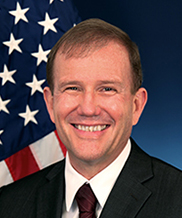 Brian Pierce, Collaborating with Machines on the Data Wisdom Spectrum. Before machines, humans handled all tasks across the data-wisdom spectrum. Machines today perform low-level data and information processing tasks, freeing humans to concentrate on higher-level endeavors involving knowledge, understanding and wisdom. In the future, we will want machines to collaborate with humans at the upper end of the data-wisdom spectrum, as illustrated by representative DARPA programs.
Brian Pierce, Collaborating with Machines on the Data Wisdom Spectrum. Before machines, humans handled all tasks across the data-wisdom spectrum. Machines today perform low-level data and information processing tasks, freeing humans to concentrate on higher-level endeavors involving knowledge, understanding and wisdom. In the future, we will want machines to collaborate with humans at the upper end of the data-wisdom spectrum, as illustrated by representative DARPA programs.
Brian Pierce is the Deputy Director of DARPA’s Information Innovation Office (I2O). This is Dr. Pierce’s second tour at the agency, having served as the deputy office director of the Strategic Technology Office from 2005 to 2010. Dr. Pierce has almost 30 years of experience developing advanced technologies in the aerospace/defense industry. Prior to joining DARPA, he was a technical director in Space and Airborne Systems at the Raytheon Company. From 2002-2005, he was executive director of the Electronics Division at Rockwell Scientific Company.
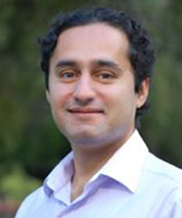 Ajay Chander, Digital Life Systems. Fujitsu’s continuous, connected, and personalized “Digital Life” systems and services span several service verticals including healthcare/wellness and education/training, and user settings including consumer/enterprise and provider/client. Active research projects explore augmenting human, organizational, and systemic capabilities with computational sensing, analysis, and influence systems.
Ajay Chander, Digital Life Systems. Fujitsu’s continuous, connected, and personalized “Digital Life” systems and services span several service verticals including healthcare/wellness and education/training, and user settings including consumer/enterprise and provider/client. Active research projects explore augmenting human, organizational, and systemic capabilities with computational sensing, analysis, and influence systems.
Ajay Chander leads R&D teams in imagining and building new human-centric technologies and products. His work has spanned digital healthcare and wellness, software security, and behavior design. Currently, Dr. Chander directs the Digital Life Lab at Fujitsu Labs of America, which builds solutions that acknowledge and leverage the “humans-in-the-loop” in an increasingly digitally dense world. At Fujitsu, Dr. Chander also provides technical and thought/strategy leadership for all aspects of the interplay between technology and the human experience, with a focus on human-centric systems and solutions. Dr. Chander holds a PhD in Computer Science from Stanford University.
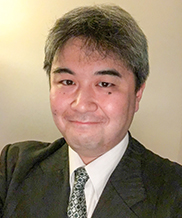 Ryota Yamada, Technology to Understand Humans. “Technology to Understand Humans” is under development as a next generation core technology at OMRON. Ideas for future applications to be realized through open innovation will be shown as examples.
Ryota Yamada, Technology to Understand Humans. “Technology to Understand Humans” is under development as a next generation core technology at OMRON. Ideas for future applications to be realized through open innovation will be shown as examples.
Ryota Yamada is an Expert at the Open Innovation Initiative, Technology and Intellectual Property H.Q., OMRON Corporation. Mr. Yamada joined OMRON in 2002 as a Software Engineer. From 2003 to 2006, Mr. Yamada was a Visiting Researcher at mediaX at Stanford University, where he worked with Professor Cliff Nass on designing and implementing Socially Intelligent Agent technology, which improves human performance. After returning to Japan, he worked on the research and development of web communication systems for experts in factory and wireless sensor network systems. Mr. Yamada holds Bachelor’s and Master’s degrees in Engineering from the Nagoya Institute of Technology in Japan.
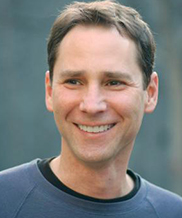 David Sirkin, Automated Context Sensing. Automated Context Sensing projects involve designing robot or IoT behavior based on social or environmental context, as well as developing tools and applications that can sense driver/pedestrian state in automated cars or engage with them directly. For example, a navigation application that asks drivers about events in the world serves as a perfect cover story to infer their situation awareness, which then informs how the automated system should respond.
David Sirkin, Automated Context Sensing. Automated Context Sensing projects involve designing robot or IoT behavior based on social or environmental context, as well as developing tools and applications that can sense driver/pedestrian state in automated cars or engage with them directly. For example, a navigation application that asks drivers about events in the world serves as a perfect cover story to infer their situation awareness, which then informs how the automated system should respond.
David Sirkin is a Research Associate at Stanford University’s Center for Design Research (CDR) and Lecturer in Electrical Engineering, where he teaches interactive device design. At CDR, Dr. Sirkin focuses on design methodology, as well as the design of physical interactions between humans and robots, and autonomous vehicles and their interfaces. Dr. Sirkin frequently collaborates with, and consults for, local Silicon Valley and global technology companies including Siemens, SAP and Microsoft Research.
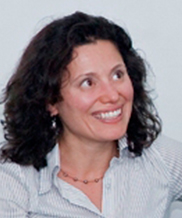 Moderator: Karina Alexanyan, mediaX at Stanford University. Karina is the Member Benefits Manager with mediaX at Stanford University. Dr. Alexanyan’s research background is in global social media networks, technology, and education. She has consulted for leading academic, corporate and non-profit clients, including Stanford, Harvard and Columbia Universities. Alexanyan holds a PhD in Communications from Columbia University School of Journalism, a M.A. in Communication from NYU and a BA in Linguistics and Modern Languages from the Claremont Colleges.
Moderator: Karina Alexanyan, mediaX at Stanford University. Karina is the Member Benefits Manager with mediaX at Stanford University. Dr. Alexanyan’s research background is in global social media networks, technology, and education. She has consulted for leading academic, corporate and non-profit clients, including Stanford, Harvard and Columbia Universities. Alexanyan holds a PhD in Communications from Columbia University School of Journalism, a M.A. in Communication from NYU and a BA in Linguistics and Modern Languages from the Claremont Colleges.